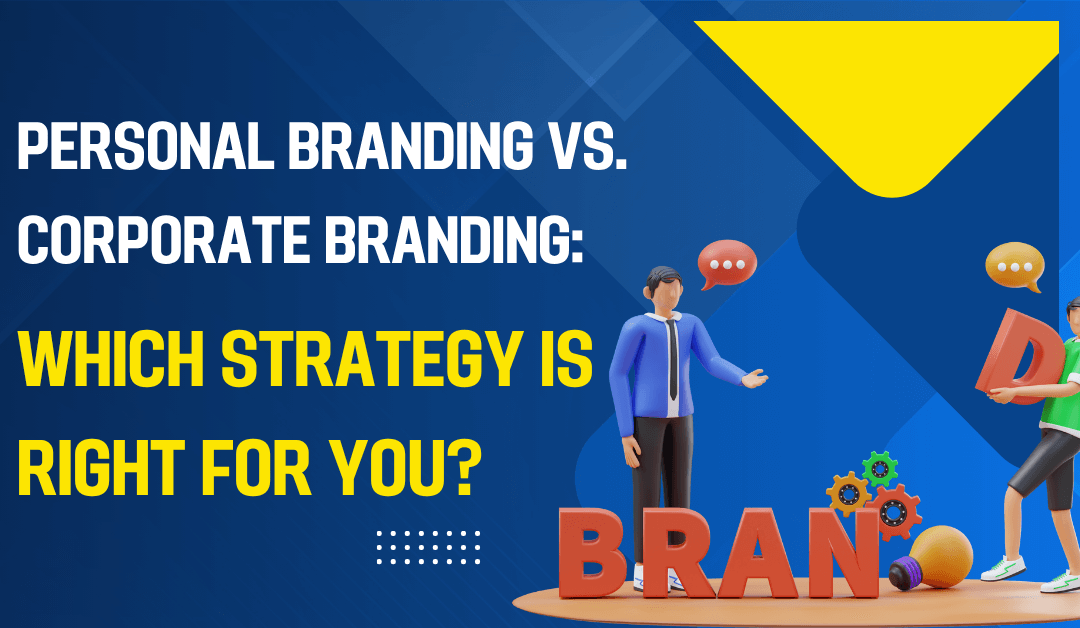Brand is the most valuable asset. It’s how you communicate who you are, what you stand for, and why customers should choose you. But a critical question every founder, freelancer, and business leader faces early on is: Should I be the face of the brand, or should the company be its own entity?
This is the core of the personal branding vs. corporate branding debate. The path you choose will fundamentally shape your marketing, your connection with your audience, and your company’s long-term potential. Let’s break down which one is right for you.
What is Personal Branding? The Power of You
A personal brand is built around an individual. It’s your reputation, expertise, and personality scaled for a public audience. Think of it as the professional you, amplified. It’s authentic, relational, and builds trust through a human connection.
- It’s built on: Your unique story, skills, and point of view.
- Examples: Gary Vaynerchuk (VaynerMedia), Marie Forleo (Business Coach), Elon Musk (Tesla, SpaceX). People often follow them as much as they follow their companies.
What is Corporate Branding? The Power of We
A corporate brand is the identity of an organization. It’s a carefully constructed persona built on a collective mission, vision, and values. This brand exists independently of any single person, designed to be consistent, reliable, and scalable.
- It’s built on: A shared mission, consistent messaging, and a distinct visual identity.
- Examples: Coca-Cola, Nike, Google. These brands evoke feelings and ideas without you needing to know who the CEO is.
The Head-to-Head: A Quick Comparison
To make the choice clearer, let’s put them side-by-side.
|
Feature |
Personal Brand |
Corporate Brand |
|
Focus |
An individual’s expertise & personality |
The company’s mission & values |
|
Trust |
Built on relatability & human connection |
Built on reputation, consistency & reliability |
|
Voice |
Authentic, unique, and personal |
Controlled, consistent, and professional |
|
Scalability |
Limited; it’s tied to one person |
Highly scalable; can grow beyond founders |
|
Risk |
High; one person’s mistake can damage it |
Dispersed; less dependent on one person’s reputation |
|
Flexibility |
Can pivot quickly with personal interests |
Slower to change; requires strategic alignment |
When to Choose a Personal Brand
Leaning towards putting yourself front and center? A personal brand is your best bet if:
- You ARE the service: Consultants, coaches, artists, speakers, and freelancers. Your expertise is the product.
- You’re in a trust-based industry: Fields like finance, real estate, or wellness benefit from a human connection.
- You want to build a community: A personal brand excels at creating a loyal following that connects with you as a person.
- You need to be nimble: You can change your offerings or niche quickly without a complex rebranding process.
When to Choose a Corporate Brand
Is your vision bigger than just one person? A corporate brand is the right choice when:
- Your goal is to sell the company: A strong corporate brand is an asset that can be sold, as it doesn’t depend on the founder.
- You have a large team: A corporate brand unifies your team under a single mission and voice.
- Your product is the hero: If you’re selling software, physical goods, or a service that stands on its own, let the product be the star.
- You want to build a legacy: Corporate brands are built to outlast their founders and stand the test of time.
The Best of Both Worlds: The Hybrid Approach
Here’s the modern secret: You don’t always have to choose.
The most powerful strategy today is often a hybrid one. This is where a strong personal brand (like a CEO or key leader) acts as a powerful ambassador for a distinct corporate brand.
Think of Steve Jobs and Apple. His personal brand, known for innovation and perfectionism, gave Apple an incredible human story. Yet, Apple’s corporate brand was so strong that it thrived long after he was gone. The personal brand builds the initial heat and trust, while the corporate brand creates the enduring light and structure.
The Final Verdict: It’s All About Your Goal
There is no “better” option—only the one that aligns with your ultimate vision.
- Choose personal branding if your goal is to build a platform based on your individual expertise and connect deeply with an audience.
- Choose corporate branding if your goal is to build a scalable, sellable entity that can stand on its own and outlive any single individual.
Take a moment to define your endgame. Once you know where you’re going, the right path for your brand will become crystal clear.

